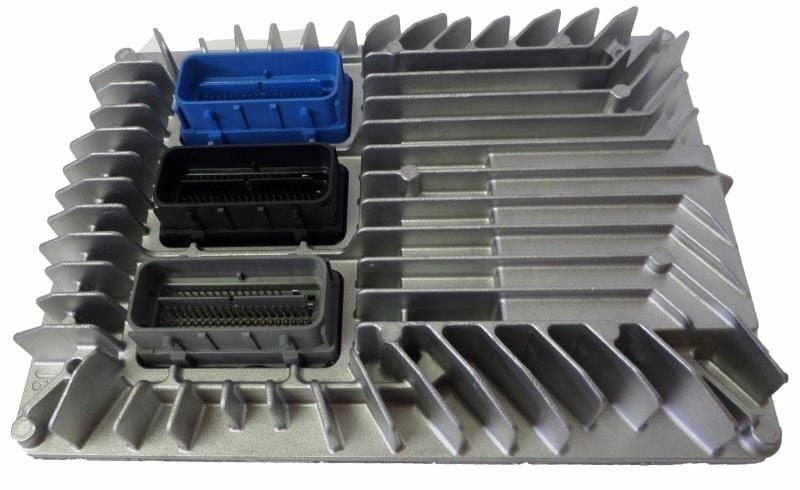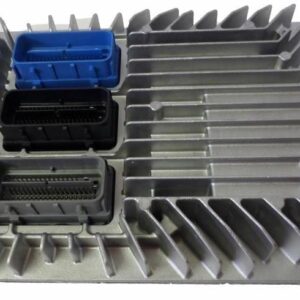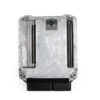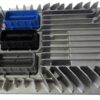Restore Peak Performance to Your GM Vehicle
Is your car suffering from baffling issues like stalling, a persistent check engine light, or a complete no-start condition? As a technician with over two decades of experience under the hood, I’ve seen countless drivers frustrated by problems that seem to have no logical cause. Often, the culprit is the very brain of the engine: the Engine Control Module (ECM). When it fails, it can send your vehicle’s systems into chaos. This isn’t just an inconvenience; it affects your vehicle’s reliability, fuel economy, and safety.
This is a direct-fit replacement Engine Control Module, designed to restore the precise, factory-spec operation your vehicle had when it was new. The biggest hurdle in replacing an ECM is the programming—a step that typically requires an expensive trip to the dealership. We eliminate that hassle. By providing us with your Vehicle Identification Number (VIN) during checkout, you receive a module that is professionally flashed with the latest GM software specific to your car. This ensures seamless integration and performance right out of the box. For a DIY enthusiast or a professional shop, this saves critical time and money.
Case Study: The Ghost in the Machine
I remember a 2011 Chevy Equinox that came into my bay with a wild set of symptoms. The dash lights would flicker, it would randomly stall at red lights, and it threw a handful of communication codes (U-codes) that made no sense together. The owner had already replaced the battery and alternator. After hours of chasing wires, we finally isolated the issue to an internal ECM fault. A replacement like this one, pre-programmed and ready to install, would have turned a full day of diagnostic headaches into a one-hour repair. This is the exact solution for those tricky electrical gremlins.
Is Your Vehicle Showing These Symptoms?
A failing ECM can manifest in numerous ways. If you’re experiencing any of the following, it’s a strong indicator that your engine’s computer may need replacement:
- ✔ Check Engine Light is on with codes like P0601, P0606, or other internal processor faults.
- ✔ Vehicle has no-start or hard-start issues, but the battery and starter are good.
- ✔ Unexplained loss of engine power or poor acceleration.
- ✔ Drastically reduced fuel efficiency.
- ✔ Engine stalling or misfiring intermittently.
- ✔ Automatic transmission shifting erratically or harshly.
- ✔ Communication errors with your scan tool (U-codes).
A Straightforward Guide to Installation
Replacing the ECM is a manageable job for a confident DIYer. While specific locations vary by model (e.g., LH engine compartment on an Allure, air cleaner bracket on an Impala), the general process is consistent. This guide for the 2010 Allure Engine Control Module is a great starting point.
- Safety First: Disconnect the negative terminal from your vehicle’s battery and secure it away from the post to prevent accidental reconnection.
- Locate the ECM: On most compatible vehicles, the ECM is found in the engine bay, often near the firewall or attached to the air filter housing.
- Disconnect Connectors: Carefully release the locking tabs on the electrical wiring harnesses and pull them straight out from the module. Do not force them.
- Remove Mounting Bolts: Use the appropriate socket to unbolt the old ECM from its mounting bracket.
- Install the New Module: Seat your new, pre-programmed ECM onto the bracket and secure it with the mounting bolts.
- Reconnect Everything: Plug the wiring harnesses back into the new module until they click securely in place. Reconnect the negative battery terminal.
- Perform Relearn Procedure (If Required): In many cases, a security or crank-relearn procedure may be necessary. Consult your vehicle’s service manual or a reliable online resource for the specific steps for your model. This often involves a sequence of key cycles.
Verified Vehicle Compatibility
This module is a direct replacement for multiple part numbers, including 12616889, 12630908, 12637106, 12642665, 12650256, and 12651993. It is guaranteed to fit the following models. Please verify your specific engine and options.
- Buick Allure: 2010 (2.4L, 3.0L)
- Buick LaCrosse: 2010-2011 (2.4L, 3.0L)
- Buick Regal: 2011
- Cadillac CTS: 2010-2012 (3.0L, 3.6L)
- Cadillac SRX: 2010-2011 (3.0L)
- Chevrolet Camaro: 2012 (3.6L)
- Chevrolet Captiva Sport: 2012
- Chevrolet Equinox: 2010-2011
- Chevrolet Impala: 2012
- Chevrolet Orlando: 2012-2013
- GMC Terrain: 2010-2011
- Saab 9-5: 2010-2011 (2.0L)



